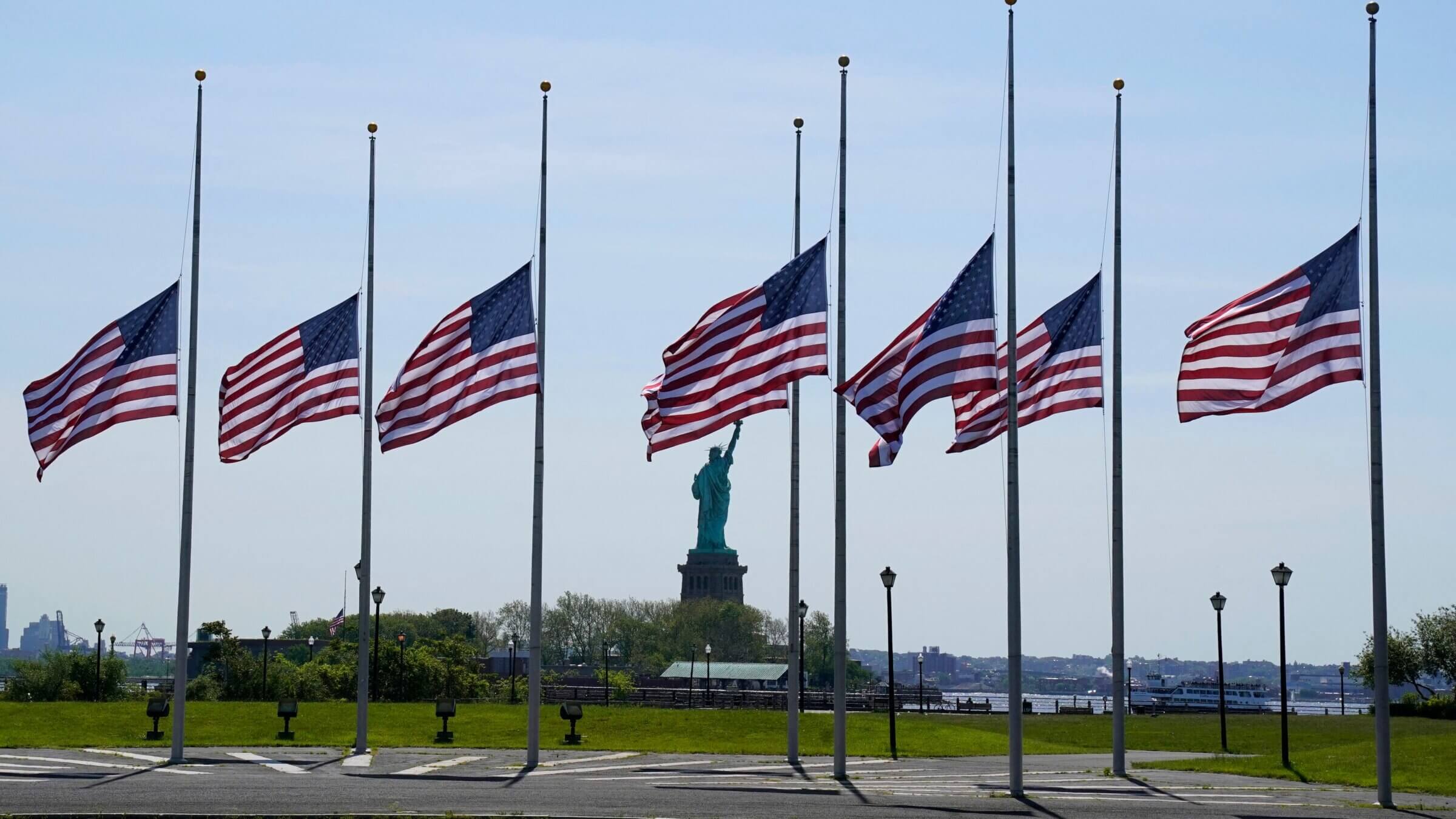What we talk about when we talk about Uvalde
While politicians seem useless in the face of the latest horrific tragedy, the works of the ancient Greeks provide more useful insights

American flags, fly at half-mast to remember the victims of the May 24 shooting at Robb Elementary School in Uvalde, Texas. Photo by Getty Images
The news from Uvalde has metastasized our already deepening sense that our lives have gone meta. It is a ritual to remark that the responses of our politicians to mass killings are a ritual. It is a commonplace for commentators to comment that such massacres are commonplace. It is incomprehensible how often, in everyday conversation, we invoke this word to indicate our inability to comprehend these events.
And, of course, it is tragic that we turn to this word to describe such events. Americans on both sides of our deepening political and cultural divide have used the words “tragedy” or “tragic” in response to the killing of 19 children and two teachers at an elementary school in Uvalde. The governor of Texas, Greg Abbott, portrayed this event, somewhat redundantly, as a “horrific tragedy,” while his opponent in this fall’s election, Beto O’Rourke, tweeted that he was “heartbroken and troubled to learn about today’s tragic event.”
Their weakness for this word is not exceptional: Upon typing the words “Uvalde” and “tragic,” Google will vomit up more than 2 million links.
Thanks to the quickening pace of Americans murdering other Americans en masse, we have murdered the meaning of “tragedy.” We have used the word so often that we now steep in what researchers call “semantic saturation.” This was probably inevitable. According to the Gun Violence Archive, our country has experienced 215 mass shooting events this year. These numbers numb not just our minds, but our words as well. When it comes to tragedy, we have dynamited the bridge between the signifier and signified. To save our sanity, what choice did we have?
But this development is, if not tragic, at the very least unfortunate. What, exactly, do we talk about when we talk about tragedy? Mostly, it seems, we talk about events of great misfortune, the sources of equally great affliction and destruction. By this measure, what happened in Uvalde yesterday was a tragedy beyond measure. So, too, was what happened in Buffalo less than two weeks ago. In both cases, the killer was 18 years old. Both were too young to buy a six-pack, but old enough to pack an AR-15 and body armor in both Texas and New York.
In both cases, as well, the killers targeted elementary schools. (The Buffalo teenager eventually decided to attack a supermarket instead since, as he noted, elementary schools “are locked up tight.”) And, of course, a chorus of Americans immediately described both events as tragedies. (Joining this chorus was Blake Waldrop, the CEO of RMA Armament, whose company sold body armor plates to the Buffalo suspect. “We are devastated by this tragedy,” he announced in an official statement.)
Yet, if we could wring out the word’s semantic saturation, we might glimpse an earlier and more useful use of the word. A usage, in effect, that reminds us that tragedy remains Greek to us. In his recent book, “Tragedy, the Greeks and Us,” the philosopher Simon Critchley explores how the ancient Greek tragedians understood their world. Tragedy is not simply something that happens to us, the way that, say, a meteor happened to dinosaurs 65 million years ago or, for that matter, an earthquake happened to the residents of Lisbon 250 years ago. Both events were out of the control of its victims.
Not so with real tragedies, though. The works of Aeschylus, Sophocles and Euripides reveal the human factor in the making of tragedy. As Critchley writes, “Tragedy requires some degree of complicity on our part in the disaster that destroys us.” It is not that the gods did this to us, but that we collaborated with the gods to do this to us. The upshot, as Critchley makes clear, is terrifying: “Tragedy requires our collusion with [our] fate. In other words, it requires no small measure of freedom.”
My daily commute to work reveals the degree of that collusion. The 12-mile stretch of Interstate 45 between my home and workplace bristles with billboards. There are those for fast food and others for fast internet; there are those for megachurches and others for mega-car dealers. And there are those for boat shows and others for gun shows. Several now advertise this weekend’s NRA show at the city’s George Brown Convention Center, one splashing the word “Silencers!” across the length of the sign, another promising “14 Acres of Guns and Gear.”
Guns are deeply embedded in my state’s culture. So embedded, in fact, that I spend time with a close friend in the west Texas town of Hondo — just down the road from Ulvade — where, in the company of my friend’s father, a stern and sagacious gun instructor, we shoot at targets on his private range.
But there are no AR-15s in his locked and rarely loaded collection. He despises them. They are as alien to his world as meteors were to the world of dinosaurs. Yet all it takes is one exception, and extinctions ensue. And the more exceptions we create, the more frequent they will be. And here’s the tragic rub: we know this, yet we don’t. Or, rather, we refuse to know what we know, refuse to see what see, refuse to hear what we hear.
Not unlike, Critchley remarks, Oedipus in Sophocles’ tragedy. “Tragedy is about many things,” he concludes, “but it is centrally concerned with the conditions for actually seeing and actually hearing.” Oedipus gouged out his eyes to achieve this insight. What must we do?
















